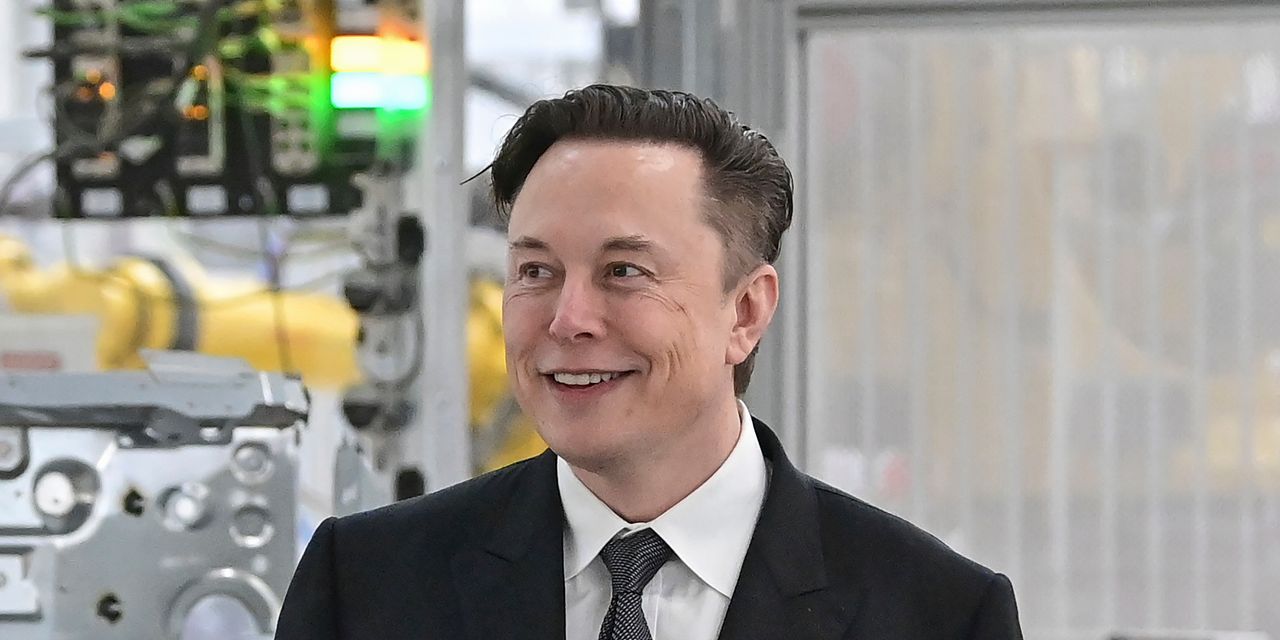Elon Musk foiled a Ukrainian submarine drone attack on a Russian naval fleet last year by turning off the SpaceX Starlink satellite internet network near the Crimean coast to prevent a “mini-Pearl Harbor,” a biography of the billionaire claims.
Musk said he thought the Kremlin would respond to the Ukraine attack with nuclear weapons — a fear reportedly he said was based on conversations he’d had with senior Russian officials, according to an excerpt of author Walter Isaacson’s “Elon Musk,” CNN reported Thursday.
As Ukrainian submarine drones carrying bombs approached the ships, they “lost connectivity and washed ashore harmlessly,” Isaacson writes, according to the cable news channel.
Ukrainian officials appealed unsuccessfully to the SpaceX founder — who is also the owner of X, the former Twitter, and CEO of electric-vehicle maker Tesla
TSLA,
to turn the satellite internet constellation back on — the book, published by Paramount Global
PARA,
unit Simon & Schuster, reportedly adds.
The Musk book by Isaacson, whose past biography subjects have included Steve Jobs, Albert Einstein and Henry Kissinger, is due for release next week.
Don’t miss (June 2022): Elon Musk’s Starlink ‘destroyed Putin’s information campaign’ in Ukraine, U.S. general says
Isaacson reportedly writes that Musk spoke with U.S. national-security adviser Jake Sullivan; the chairman of the joint chiefs of staff, Gen. Mark Milley; and the Russian ambassador to the U.S.
Musk had agreed to provide Ukraine with Starlink satellite terminals after Russia disrupted the country’s communication system before it invaded the country in February 2022 but began to experience “existential dread” of escalating the bloodshed by contributing to counterattacks, according to the Isaacson book.
From the archives (February 2023): Elon Musk used to boast of satellite-communications system Starlink’s role in Ukraine’s defense against Russia’s invasion. Now SpaceX is restricting its use.
Also see (February 2022): Ukraine says SpaceX’s Starlink satellite internet equipment has arrived
“How am I in this war?” Musk reportedly asked Isaacson. “Starlink was not meant to be involved in wars. It was so people can watch Netflix and chill and get online for school and do good peaceful things, not drone strikes.”
In October 2022, Musk said he would no longer pay for his Starlink satellite internet service to operate in Ukraine after officials blasted his controversial proposal for Ukraine to end the war by conceding Crimea to Russia and forswearing future membership in NATO, but never followed through on his threat.
He had posed his putative peace solution as a poll on his then–newly acquired Twitter platform — since (mostly) rebranded as X — which drew praise from the Kremlin and scorn from Ukraine President Volodymyr Zelensky, who created his own Twitter poll asking users if they preferred the pro-Russian Musk or the pro-Ukraine Musk.
Isaacson, former CEO of the nonpartisan Aspen Institute as well as a past editor of Time magazine and CNN chairman, was awarded the National Humanities Medal by President Joe Biden this year.
A version of this report appeared at NYPost.com.
Key Words (October 2022): Musk’s purported peace plan for Ukraine draws condemnation from diplomat, statesmen and chess champion
Read the full article here










Leave a Reply